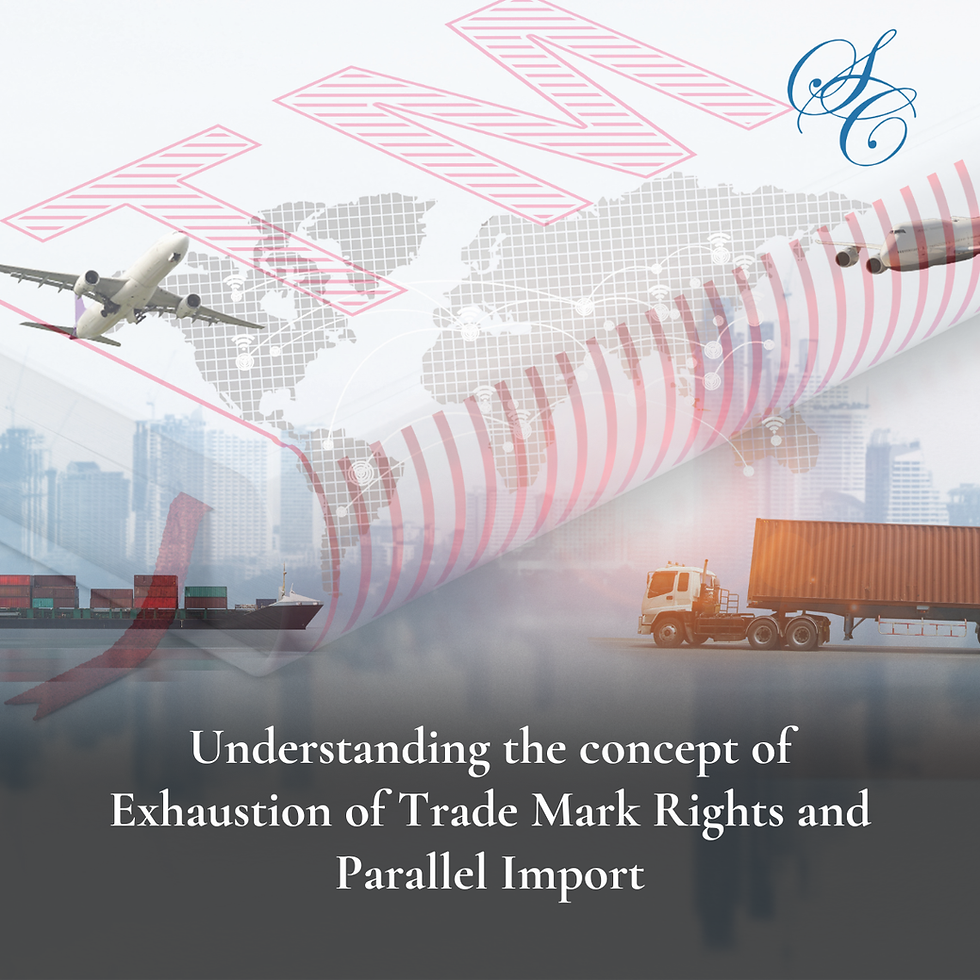A Common Ground at last: An Analysis of the 12th WTO Ministerial Conference Declaration
- Sarwajeet Singh
- Aug 1, 2022
- 4 min read
Ever since the outbreak of COVID-19 pandemic, talks had been ongoing among Members of the World Trade Organization (WTO) to formulate a comprehensive multilateral response to COVID-19 which takes into account the “exceptional” character of the crisis. The 12th Ministerial Conference (“MC12”) that took place from 12th to 17th June, 2022 at the WTO headquarters in Geneva proved to be a watershed moment in the history of multilateral trade regime for intellectual property rights. The WTO Members finally adopted a declaration[1], also known as the “MC12 Declaration” where the Members agreed on a partial patent waiver for COVID-19 vaccines, albeit only for the developing country Members. As a result, the governments of developing country Members can now compel Covid vaccine patent holders to share their vaccine recipes under the MC12 Declaration for the next five (5) years, subject to extension if the need is felt. The Members have also agreed to increase the scope of waiver to COVID-19 diagnostics and therapeutics, in addition to patents, after a period of six (6) months, if need be.
This declaration came as a result of the proposal for a temporary waiver of several provisions of the TRIPS Agreement initially tabled by India and South Africa on October 2, 2020 (IP/C/W/669) to address the prevention, containment and treatment of COVID-19.[2] The initial proposal sought to enable Members not to grant or enforce patents (Section 5, TRIPS) or other IP obligations on copyright (Section 1, TRIPS), industrial designs (Section 4, TRIPS) and the protection of undisclosed information or trade secrets (Section 7, TRIPS). This initial proposal, however, did not provide any specific duration for which it was to remain in force but merely stated that it would continue till the time widespread global vaccination was achieved and the majority of the world’s population had developed immunity. This joint proposal was ambitiously tabled with a view of recalibrating the TRIPS architecture to effectively respond to the COVID-19 pandemic. India and South Africa, being the proposing Members, were appreciative of the fact that merely waiving the patents on COVID vaccines, which were still in the nascent stages of development at that time, would not cut the ice. Rather, other medical and pharmaceutical products and equipment viz. diagnostics kits, medical masks, protective equipment, ventilators, medicines, etc. needed to be readily accessible at affordable prices to nations around the world for any such declaration to have a tangible effect.
The initial proposal for TRIPS waiver did not find many suitors among the western and other developed nations. The European Union, in fact, in October 2020, went to the extent of asserting that there was “no indication that IPR issues had been a genuine barrier in relation to COVID-19 related medicines and technologies” and staunchly opposed the idea of any such waiver.[3] By May 2021, when many countries in the world had already faced at least two devastating COVID-19 waves and were in a desperate need of procuring vaccines, the WTO COVID-19 TRIPS waiver proposal had amassed 62 official co-sponsors, who issued a revised proposal on May 25, 2021.[4] This revised proposal also went through several revisions. After continual amendments and a number of alternate proposals tabled by various nations, the WTO Members finally arrived at a common ground with the MC12 Declaration.
Clause 1 of the MC12 Declaration empowers ‘eligible Members’, i.e., Members from the developing countries, to limit the patent owner’s rights under Article 28.1 of the TRIPS Agreement (which enumerates the exclusive rights of a valid patent holder) by authorizing the use of the subject matter of a patent required for production and supply of COVID-19 vaccines without the right holder’s prior consent. This use, however, must be in accordance with Article 31 of the TRIPS Agreement (which contains provisions that the member nations shall be mindful of while incorporating Compulsory License provisions into their domestic legislations). Pertinently, developing country Members which have existing manufacturing capacity for COVID-19 vaccines are encouraged not to avail these relaxations/ waivers.
Clause 3 of the declaration further provides some considerable relaxations. For instance, it does away with the requirement of an eligible member/ proposed user having to make efforts to obtain authorization from the patent holder. Pertinently, pre the MC12 Declaration, the eligible Members would have had to ensure that the vaccines manufactured as a result of the patent vaccine waiver were “predominantly for the supply of the domestic market” of the authorizing member. Post this declaration, however, the eligible Members will now be able to export any proportion of such vaccines to other eligible member countries. Further, the requirement of adequate remuneration being paid to rights holder in case a member avails of Compulsory licence flexibilities, as provided in Article 31(h) of TRIPS, has been relaxed to additionally take into account the “humanitarian and no-for-profit purpose of specific vaccine distribution programs”. The MC12 Declaration further paves the way for rapid approval of COVID-19 vaccines by relaxing the data exclusivity provisions contained in Article 39.3 of TRIPS for eligible country Members.
The MC12 Declaration is being perceived by many experts as merely a reiteration of developing countries’ existing rights to override patents in certain circumstances, while simultaneously attempting to restrict that limited right to countries which do not have the capacity to produce COVID-9 vaccines. Some experts have gone to the extent of saying that the MC12 Declaration is, simply put, “a technocratic fudge aimed at saving reputations, not lives.”[5] However, there is still hope that these relaxations, even with their fair number of shortcomings, will provide some much needed respite to at least the developing and least-developed countries.
[1] No. WT/MIN(22)/31




Comments